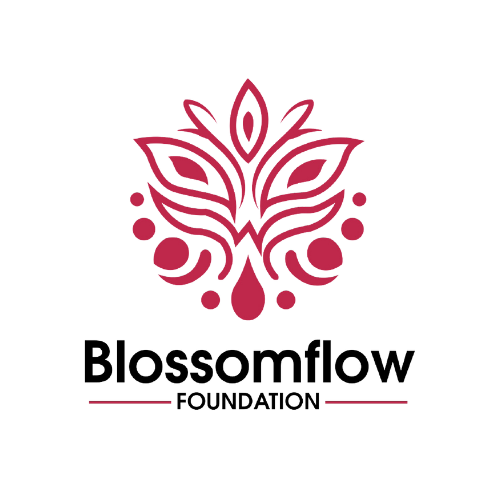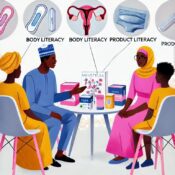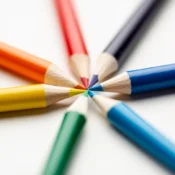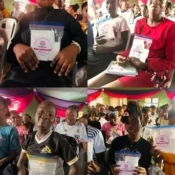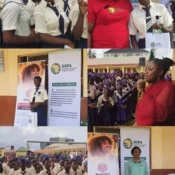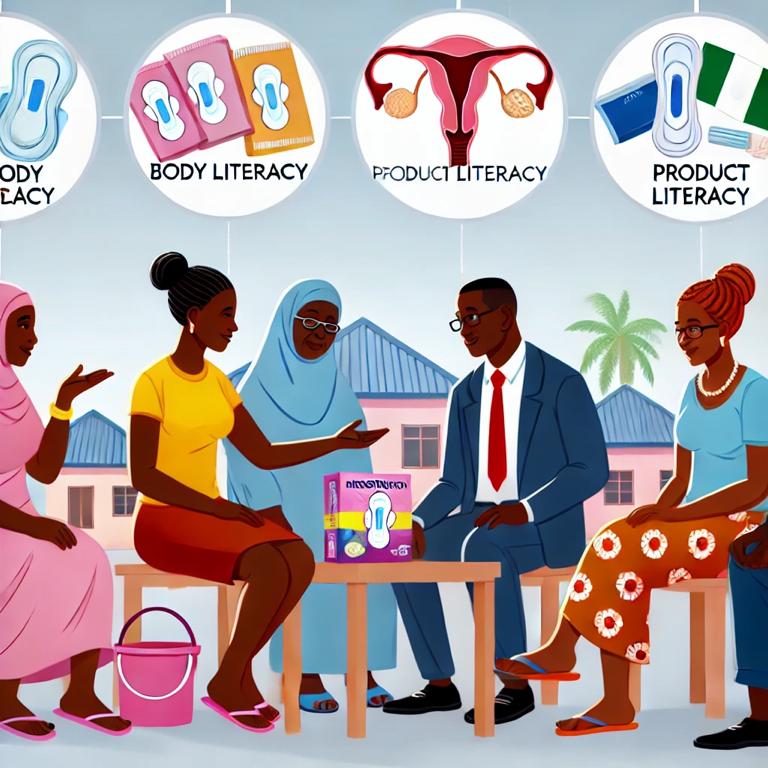
Understanding Menstrual Literacy in Nigeria: Bridging Cultural Gaps and Enhancing Well-being
Introduction
Menstrual literacy in Nigeria is a crucial yet often overlooked aspect of women’s health. In many cultures, including Nigeria, there is a significant lack of understanding about what girls and women go through during their menstrual cycles. Fathers do not understand their daughters, husbands fail to empathize with their wives, and even women themselves may lack knowledge about their own bodies. This lack of awareness can lead to various physical and emotional challenges. Menstrual literacy is not just about knowledge; it is about fostering a supportive environment where women and girls can thrive.
The Cultural Barriers to Menstrual Understanding
- Fathers and Daughters
In many societies, menstruation is seen as a taboo topic, making it difficult for fathers to discuss or understand what their daughters are experiencing. This cultural barrier leads to a lack of support and empathy, which can affect a girl’s emotional well-being. Girls who feel unsupported may experience increased stress and anxiety during their menstrual cycles, impacting their overall health and self-esteem. - Husbands and Wives
Similarly, husbands often lack the understanding necessary to support their wives during menstruation. This gap can cause friction in relationships and leave women feeling isolated during a time when they need support the most. A lack of communication about menstrual health can lead to misunderstandings and tension, undermining the emotional bond between partners. - Boys and Girls
Boys growing up without adequate menstrual education can perpetuate myths and stigmas surrounding menstruation. This ignorance can lead to teasing and bullying, making it even harder for girls to feel comfortable and confident. Educating boys about menstruation can foster a more inclusive and respectful environment, reducing the stigma and promoting gender equality. - Women Themselves
Shockingly, many women lack comprehensive knowledge about their menstrual cycles and how to care for their health during menstruation. This knowledge gap can lead to poor menstrual hygiene practices and an inability to recognize when something is wrong. Women who understand their bodies are better equipped to manage their health, seek medical advice when necessary, and advocate for their well-being.
What is Menstrual Literacy?
Menstrual literacy encompasses four main aspects:
- Body Literacy
Understanding how our bodies work and the physical and emotional changes involved in puberty and menstruation is crucial. Body literacy empowers individuals to recognize normal menstrual patterns and identify potential health issues. It involves knowing the phases of the menstrual cycle, recognizing symptoms of menstrual disorders, and understanding the importance of menstrual hygiene. - Product Literacy
Knowing what menstrual products are available, including reusable options, is essential. This knowledge enables women to choose products that are best suited to their needs, enhancing comfort and hygiene. Product literacy includes understanding the benefits and drawbacks of various menstrual products, such as pads, tampons, menstrual cups, and reusable cloth pads. - Health Literacy
Health literacy involves understanding how to maintain menstrual health and hygiene, recognizing symptoms that may require medical attention, and knowing how to seek appropriate medical care. It includes knowledge about menstrual disorders, their treatments, and the importance of regular health check-ups. - Social Literacy
Social literacy includes understanding the social and cultural aspects of menstruation, such as overcoming stigmas, knowing one’s rights regarding menstrual health, and advocating for better menstrual health policies and practices within the community. It empowers women and girls to speak openly about menstruation and seek the support they need.
The Importance of Menstrual Literacy in Nigeria
In Nigeria, menstrual literacy is particularly important due to the prevalent cultural and societal taboos surrounding menstruation. Many girls miss school during their periods due to a lack of proper menstrual products and understanding, which affects their education and future opportunities. This absenteeism can have long-term effects on their academic performance and career prospects.
- Overcoming Cultural Barriers
To overcome these barriers, it is essential to foster open discussions about menstruation at home and in schools. Educational programs aimed at both boys and girls can help dispel myths and reduce the stigma associated with menstruation. Creating a supportive environment where menstruation is openly discussed can empower girls to feel confident and secure during their periods. - Government and Community Initiatives
Government and community initiatives can play a significant role in improving menstrual literacy. By providing comprehensive menstrual education and making menstrual products more accessible, these initiatives can ensure that all women and girls have the resources they need to manage their periods effectively. Policies that promote menstrual health education and subsidize menstrual products can have a profound impact on the well-being of women and girls. - Health Education in Schools
Incorporating menstrual education into school curriculums can ensure that young girls and boys learn about menstruation in a supportive and factual environment. This education should cover the biological aspects of menstruation, menstrual hygiene management, and emotional well-being. Schools can also provide menstrual products and facilities to ensure that girls can manage their periods with dignity.
Practical Steps to Enhance Menstrual Literacy
- Open Conversations
Encourage open and honest conversations about menstruation within families and communities. Fathers, brothers, and husbands should be educated to provide support and empathy. Creating a safe space for discussions about menstrual health can reduce stigma and promote understanding. - Comprehensive Education
Implement comprehensive menstrual education programs in schools and communities to cover body literacy and product literacy. These programs should be inclusive, culturally sensitive, and accessible to all. - Access to Products
Ensure that menstrual products are affordable and accessible to all women and girls. Governments and NGOs can work together to distribute reusable menstrual products in underserved areas. Providing access to menstrual products is a critical step in ensuring that no girl misses out on education or opportunities due to her period. - Health Care Provider Training
Train health care providers to educate women and girls about menstrual health and hygiene during regular health check-ups. Healthcare professionals can play a crucial role in spreading awareness and providing accurate information about menstrual health.
Conclusion
Enhancing menstrual literacy is vital for the health and well-being of women and girls in Nigeria. By addressing cultural barriers and providing comprehensive education, we can empower women to manage their menstrual health effectively. This empowerment leads to improved physical health, emotional well-being, and overall quality of life. It is time for societies to break the silence and stigma surrounding menstruation and support women in understanding and caring for their bodies. For more information on how you can support menstrual literacy, join the #BeHerPeace Campaign. You can also read more about similar initiatives in UNICEF’s menstrual hygiene management programs.
All Categories
Recent Posts
Why SDG 4 Cannot Be Achieved Without Ending Period Poverty
Tags
Give them a helping hand
Every donation fuels our mission to combat period poverty. Your generosity brings us closer to menstrual equity.
+234-909-482-1642
inquiries@blossomflow.org
